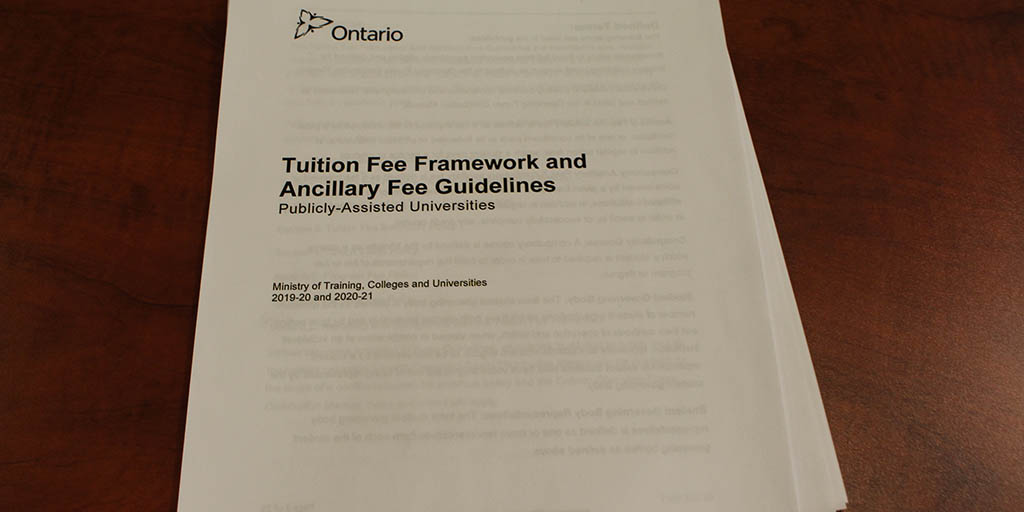Government releases tuition and ancillary fee guidelines
 CREDIT: ANGELA MCINNES
CREDIT: ANGELA MCINNESThe Ontario government has laid out its official tuition and ancillary fee guidelines.
The Ontario government released its official tuition fee framework and ancillary fee guidelines on March 29.
The guidelines come over two months after the Ministry of Training, Colleges and Universities announced changes to post-secondary tuition, including a ten per cent tuition cut and the elimination of free tuition for low-income students, along with the six-month grace repayment period for loans with the Ontario Student Assistance Program (OSAP).
The ten per cent tuition reduction will not apply to “most” international students, or full cost recovery programs receiving funding through tuition.
The ministry will freeze tuition for all academic programs across all post-secondary institutions for the 2020-21 academic year.
The changes also include the Student Choice Initiative, allowing students to opt out of “non-essential” ancillary fees.
All changes will take effect for the 2019-2020 academic year.
With the official guidelines available, post-secondary institutions now know the difference between “non-essential” and “essential” ancillary fees.
Students cannot opt out of the following fees for what the framework calls “essential” services:
• Athletics and recreation
• Career services
• Student buildings
• Health and counselling
• Academic support
• Student ID cards
• Student achievement and records
• Financial aid offices
• Campus safety programs
According to the document, health and dental plans can be charged on a compulsory basis, but schools must allow students to optout if they have proof of pre-existing coverage.
Transit passes established through pre-existing deals prior to Jan. 17 2019 have also been deemed essential. Fanshawe College is among the institutions with essential passes.
Students can opt out of paying for all services not included in the list above. Schools are required to provide students with a breakdown of each individual fee for transparency.
“Overall the College and FSU (Fanshawe Student Union) have aligned our ancillary fees to the policy and achieved increased transparency for students to understand the ancillary fees assessed and the enhanced services provided by these fees,” Janice Lamoureux, Fanshawe’s registrar, said.
FSU general manager Paul Masse told Interrobang that Fanshawe College and the FSU are working closely to ensure that the new framework has no major impact on the package of services available to students.
“The college respects the importance and autonomy of the student union,” Masse said.
He said that students will have the option of paying an FSU membership fee, as well as a clubs fee.
“All full-time students will remain members at large of the student union. Those students that do not elect to opt out of the membership fee will have the ability to access certain services such as the ability be a director and officer of the student union,” he said. “We hope and expect that many students will support the governance structure of the student union via the fee.”
Masse added that he hoped students would support the various religious, cultural and social campus clubs, even if they are not members of those clubs.
“Get informed, get involved,” he said as a message to students. “The benefits of student life to your success on campus is very high. It’s very important.”
















